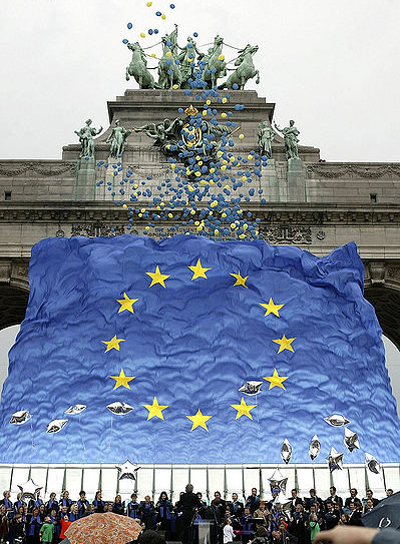The CPD Blog is intended to stimulate dialog among scholars and practitioners from around the world in the public diplomacy sphere. The opinions represented here are the authors' own and do not necessarily reflect CPD's views. For blogger guidelines, click here.

“Mucize Kuruyemiş Fındık Diyarı Türkiye” –“The Miracle Hazelnut comes from Turkey” shines in bold red letters on small packages of nuts. The flight attendant on this Turkish Airways flight TK0829 to Istanbul hands out another round of snacks. The white crescent moon and star decorate all treats. Later on, I learn that Turkey is a leader in hazelnut production, earning about 825.9 million U.S. Dollars from exports. As mentioned in historical documents, the hazelnut has grown for 2300 years on the Black Sea coast in the north of Turkey.
As oppressive Arab regimes totter and topple under the pressure of democratization movements, Israel needs to engage directly with the region’s increasingly politically empowered peoples. But can Israel implement an effective public diplomacy and harness “soft power” with the citizenry of its neighborhood? The answer must be yes; but Israeli public diplomacy strategy and analysis over the past decade provide little guidance for outreach to Arab publics.
In testimony to Congress last week, U.S. Secretary of State Hillary Clinton acknowledged the existence of an ongoing “information war” that the United States is losing. In addition to saying that “Al Jazeera is winning,” Clinton pointed to the major investments in international broadcasting being made by China and Russia.
The Chinese effort is of particular importance. As Secretary Clinton said, “We are in a competition for influence with China; let’s put aside the moral, humanitarian, do-good side of what we believe in, and let’s just talk straight realpolitik.”

How should Europe present itself in this age of smart power and public diplomacy? I suggest three images that Europe could strive to promote to foreign audiences, especially the US.
The Middle East is once again on fire, not because of American warfare, but due to apparently genuine movements aiming to get rid of old rulers and obsolete political systems. Tunisia, Egypt, Libya, Bahrain, and Yemen have all either passed the threshold of revolution or are on the verge. The dominos have fallen and it would not be imprudent to call it a day for rulers in other Arab countries like Saudi Arabia, United Arab Emirates, or Jordan.
Unfortunately, Euro-pessimism is on the rise in the United States.
India is an ancient civilization with five thousand years of recorded history. Over these long years Indians have perfected many cultural attributes that may be appealing to the rest of the world - what Joseph Nye likes to call 'soft power’. Some good examples of Indian soft power are Yoga, Bollywood, Ayurveda and the great Indian cuisine (including curry and chicken tikka).
On numerous levels, the United States continues to fall farther behind China in public diplomacy. This is yet another indication that for all its protestations about its commitment to reach out to foreign publics, the U.S. government is unwilling to commit the resources needed to do so effectively.
Pages
Visit CPD's Online Library
Explore CPD's vast online database featuring the latest books, articles, speeches and information on international organizations dedicated to public diplomacy.
POPULAR ARTICLES
-
March 22
-
April 11
-
April 1
-
March 4
-
March 19
Featured Blogger
Join the Conversation
Interested in contributing to the CPD Blog? We welcome your posts. Read our guidelines and find out how you can submit blogs and photo essays >.








